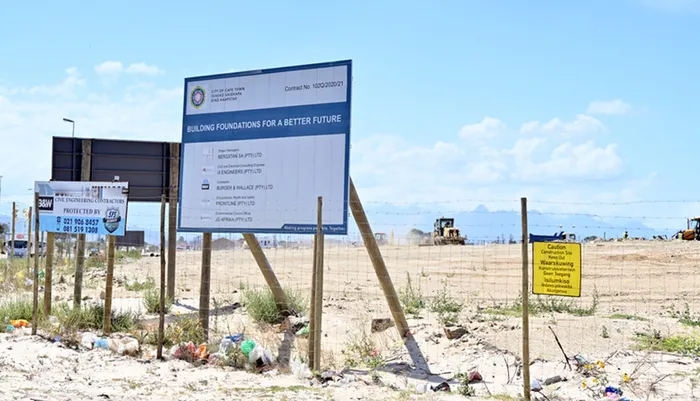Extortion costs Western Cape economy nearly half a billion

During an anti-extortion summit, the Western Cape government heard of R400 million in stalled infrastructure projects.
Image: File
EXTORTION-related crimes are effectively “strangling economic growth”, with roughly R400 million worth of public infrastructure projects stalled in the province by the end of 2024 due to criminal interference, says Premier Alan Winde.
He made the remarks during a recent high-level Anti-Extortion Summit attended by law enforcement agencies, business leaders, civil society, and multiple government departments in a bid to confront what officials described as a “systemic and organised” campaign of criminality.
The summit comes amid growing concern that extortion syndicates are paralysing infrastructure projects, intimidating communities, and undermining job creation.
Winde told the gathering that extortion was no longer a shadow crime, but a direct threat to development, public services, and lives in the Western Cape.
“This is intolerable. We must recommit to working closer together to hit back at these criminals. One way in which we can do this is by giving provinces and municipalities more of a say in policing, adequately resourcing the SAPS in our province, with crime intelligence being significantly bolstered, and by properly capacitating the National Prosecuting Authority (NPA),” he said
Police Oversight and Community Safety MEC Anroux Marais said extortion has evolved into a serious economic and security crisis, threatening livelihoods, delaying service delivery, and destabilising entire sectors.
“Extortion is a direct threat to livelihoods, small businesses, infrastructure development, and public services. It undermines the rule of law, instills fear in communities, and leaves many of our residents despondent.”
Some of the cases include gangs demanding “protection fees” from construction companies, business owners, and even public transport operators.
“They are not just stealing money. They are stealing opportunities which are critical to economic participation and job creation,” said Marais.
Winde said public-private cooperation would be crucial to dismantling extortion networks.
A dedicated multi-sectoral structure will be formed to drive anti-extortion strategies across departments and agencies.
Improved data-sharing and the enforcement of last year’s Collaboration Agreement between the SAPS, the City of Cape Town, and the provincial government were also highlighted as immediate priorities.
In the build-up to the summit, the Department of Police Oversight and Community Safety launched a province-wide survey to gather sector-specific insights into the nature and reach of extortion.
The deadline for participation was extended to June 4 to ensure broader engagement.
The survey focused on the methods used by extortionists, who they were targeting, the challenges victims face in reporting incidents, and what interventions would be most useful.
“The valuable contributions made during the summit will feed directly into our collective strategic interventions to follow,” Marais said.
She said the Western Cape Government remains “steadfast” in its commitment to rooting out extortion and restoring safety in communities.
Cape Times
Related Topics: